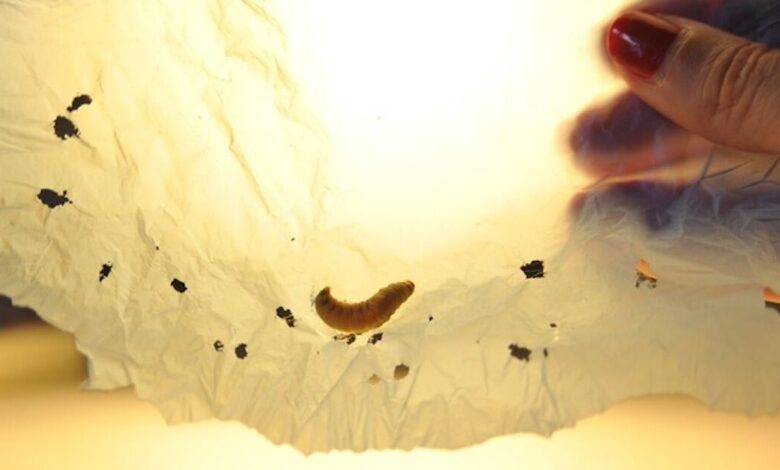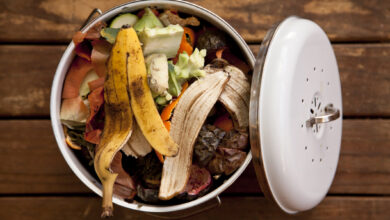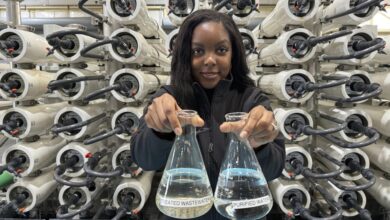
A team of CSIC researchers has discovered that wax worm saliva degrades plastic; a discovery with numerous applications for treating or recycling plastic waste. Back in 2017, the team discovered that this worm species (the lepidopteran Galleria mellonella) is able to break down plastic (polyethylene), and now they have discovered just how it does this: its saliva contains enzymes (pertaining to the phenol oxidase family) that can rapidly set off polyethylene degradation at room temperature. Photo Credit: César Hernández Regal
AnimalsEnvironment SpainWax Worms Could “Lick” Away Plastic Waste!
Accumulation of plastic waste could become a thing of the past thanks to wax worms and their saliva capable of breaking down plastic in mere hours, a potential game-changer in the way we fix this environmental problem.
“To the best of our knowledge, these enzymes are the first animal enzymes with this capability, opening the way to potential solutions for plastic waste management through bio-recycling/up-cycling,” reads the abstract of the study.
The Galleria mellonella can oxidize and depolymerize polyethylene (PE) – making up 30% of synthetic plastic – with their saliva, which contains enzymes belonging to the hexameric/prophenoloxidase family. PE can be oxidized at room temperature in a few hours and broken down when exposed to oxygen. These enzymes could potentially be put in aqueous solutions and poured over plastic in waste management facilities or in remote locations where such facilities are not available.



